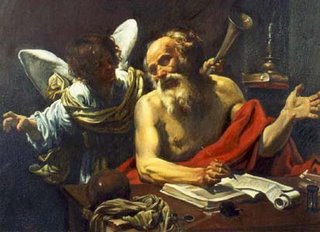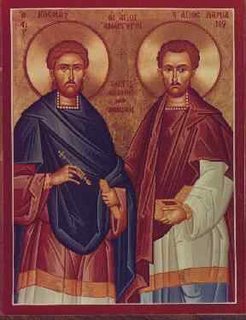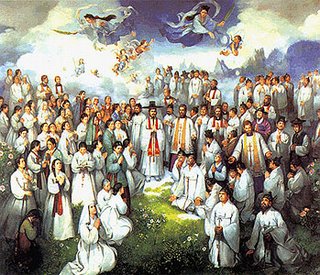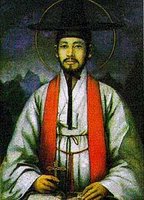 Twenty-third Sunday in Ordinary TimeReadings for the 23rd Sunday in Ordinary TimeTwenty-third Sunday in Ordinary Time
Twenty-third Sunday in Ordinary TimeReadings for the 23rd Sunday in Ordinary TimeTwenty-third Sunday in Ordinary TimeReading 1
Is 35:4-7aThus says the Lord: Say to those whose hearts are frightened:Be strong, fear
not!Here is your God,he comes with vindication;with divine recompensehe comes to
save you.Then will the eyes of the blind be opened,the ears of the deaf be
cleared;then will the lame leap like a stag,then the tongue of the mute will
sing.Streams will burst forth in the desert,and rivers in the steppe.The burning
sands will become pools, and the thirsty ground, springs of water.
Responsorial PsalmPs 146:7, 8-9, 9-10R. (1b)
Praise the Lord, my soul!The God of Jacob keeps faith forever,secures justice for the
oppressed,gives food to the hungry.The Lord sets captives free.
R. Praise the Lord, my soul!The Lord gives sight to the blind; the Lord raises up those who were bowed
down.The Lord loves the just;the Lord protects strangers.
R. Praise the Lord, my soul!The fatherless and the widow the Lord sustains,but the way of the wicked he
thwarts.The Lord shall reign forever;your God, O Zion, through all generations.
Alleluia.
R. Praise the Lord, my soul!Reading IIJas 2:1-5My brothers and sisters, show no partialityas you adhere to the faith in
our glorious Lord Jesus Christ.For if a man with gold rings and fine
clothescomes into your assembly,and a poor person in shabby clothes also comes
in,and you pay attention to the one wearing the fine clothesand say, “Sit here,
please, ”while you say to the poor one, “Stand there, ” or “Sit at my feet,
”have you not made distinctions among yourselvesand become judges with evil
designs?Listen, my beloved brothers and sisters.Did not God choose those who are
poor in the worldto be rich in faith and heirs of the kingdomthat he promised to
those who love him?
GospelMk 7:31-37Again Jesus left the district of Tyreand went by way of Sidon to the Sea of
Galilee,into the district of the Decapolis. And people brought to him a deaf man
who had a speech impedimentand begged him to lay his hand on him.He took him off
by himself away from the crowd. He put his finger into the man’s earsand,
spitting, touched his tongue;then he looked up to heaven and groaned, and said
to him,“Ephphatha!” -. that is, “Be opened!” --And immediately the man’s ears
were opened,his speech impediment was removed,and he spoke plainly. He ordered
them not to tell anyone. But the more he ordered them not to,the more they
proclaimed it. They were exceedingly astonished and they said,“He has done all
things well. He makes the deaf hear and the mute speak.”
Homily:
“
He has done all things well. He makes the deaf hear and the mute speak.”To a world in pain, these words are words of hope; words of peace. Tomorrow is September 11th, 9/11, the fifth year anniversary of the attack on the World Trade Center. We have been reminded of that fact, as if we were likely to forget it for the past week in practically every news source available to us. We have heard it on radio, TV, the internet, and at the news stand.
When we hear or see these reminders, we invariably think of where we were and what we were doing when we first learned of the attacks. We remember our shock at hearing a plane had crashed into the first tower; our growing fear when the second tower was struck; and the pandemonium that followed as reports the strike at the Pentagon and wild speculations of up to 9 additional aircraft being taken over.
That day changed the way we live in the world. It replaced a feeling of safety and security with one on fear, uncertainty, and anger. Yes, let us not forget the anger that followed the shock. Who could, for a political agenda, kill the thousands of innocent people who died at, what we now know as “Ground Zero”? Who would dare strike at our country? We were not at war with anyone.
Yes, it changed the way we think about the world and the way we live in it. Our children’s children will see moves made before that day 5 years ago and remark at how strange it is to see people just walking into an airline terminal and saying good-by to their families at the boarding gate. They will wonder at the lack of security they see in those old films.
There was something else that happened right after those attacks five years ago. People came flooding back to Church. We came because we were afraid; we came to pray; we came because something had been taken from us and we did not know were else to go to find it. We came seeking peace and consolation, and we found it in Jesus who “… has done all things well. He makes the deaf hear and the mute speak.”
As we hear today Jesus comes to fulfill the words of hope from Isaiah:
Say to those whose hearts are frightened:
Be strong, fear not!
Here is your God,
he comes with vindication;
with divine recompense
he comes to save you.
We are called to remember that, while the world has turned to violence and hatred, we are called to be a people of peace, patterning our lives after the one who came to make the deaf hear and the mute speak. We are called to be a people whose greatest commandment is to love one another; because in that love, we find the peace of Christ. It is a great tonic that allows us to live in the world but be separate from it.
Does this mean we should forget what happened five years ago? No, we cannot forget that there are those who have lost their way and in their hopelessness are willing to throw away God’s greatest gift, burning it on the pyre of hatred.
We remember that history and do our best to put peace where there was once fear,
because our Lord came to bring us that peace.
We remember that history and do our best to place forgiveness in the place of hatred,
because our Lord came to forgive and taught us to do the same.
We remember that awful day, praying for the souls of the victims and praying for
healing for their families and friends.
Finally, we remember that day and pray for those who supported that heinous act and, as we still see, support it today, that they might turn from the self destruction of hate and
find the peace that comes in the arms of Him who did all things well. He makes the deaf to hear and the mute speak.
These are not easy things for us to do. It is so easy to be reminded of all the things we have lost and be angry, vindictive, and spiteful. There has been no remorse expressed by those who perpetrated the act and support continued attacks on all Christians and Jews, but the prayerful response called for by Christ, himself, is what we are called to give.
Since the very beginning, our way of life has been attached. Never did Jesus tell us to hate those who hate us. That makes us the same as them. He calls us to be a people of peace, a image of God’s love.
As we recall the anniversary of 9-11 tomorrow, let us remember as well that our best response for our selves and for our world is the forgiveness that leads to the peace of Christ who has done all things well.
Amen




























